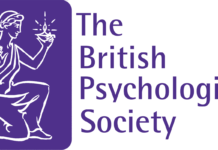Madness and the Family, Part III: Practical Methods for Transforming Troubled Family Systems
We are profoundly social beings living not as isolated individuals but as integral members of interdependent social systems—our nuclear family system, and the broader social systems of extended family, peers, our community and the broader society. Therefore, psychosis and other forms of human distress often deemed “mental illness” are best seen not so much as something intrinsically “wrong” or “diseased” within the particular individual who is most exhibiting that distress, but rather as systemic problems that are merely being channeled through this individual.
Brave New Apps: The Arrival of Surveillance Psychiatry
Large, centralized, digital social networks and data-gathering platforms have come to dominate our economy and our culture. In the domain of mental health, huge pools of data are being used to train algorithms to identify signs of mental illness. I call this practice surveillance psychiatry.
Researcher Critically Examines Movements for Global Mental Health
China Mills raises concerns that global mental health movements obscure social determinants of health and naturalize Western mental health concepts.
Minority and Immigration Status Associated with Psychosis Risk
Ethnic minorities and those who migrated during childhood have an elevated risk for psychosis, study finds.
First-Person Accounts of Madness and Global Mental Health: An Interview with Dr. Gail Hornstein
Dr. Gail Hornstein, author of Agnes’s Jacket: A Psychologist’s Search for the Meanings of Madness, discusses the importance of personal narratives and service-user activism in the context of the global mental health movement.
Are Students Benefiting From the Growth Mindset Model?
Results from two meta-analyses reveal shortcomings with the growth mindset theory as applied in schools.
Why Some Children with Depressed Parents Show Resilience
Children of parents who suffer from depression have a severely heightened risk of mental health problems, but new research points to several factors that seem to strengthen young peoples’ resilience and predict good mental health.
Study Explores Impact of Urban vs. Rural Upbringing on Stress Response
A new study investigates the relationships between early-home environmental factors and later-life physiological response to psychosocial stressors.
What Are Best Practices For Psychosis And What Gets In The Way?
Research investigates clinicians’ perspectives on best care practices and the complicated realities of providing care in the face of agency limitations and mechanized interventions.
Family Oriented, Home-Based Treatment Best for Youth with Symptoms of Psychosis
A pathbreaking new study out of Finland suggests that early intervention programs for youth experiencing psychotic-like symptoms may see the greatest improvement when treatment works within the home rather than in a hospital setting. The research, to be published in next month’s issue of Psychiatry Research, found greater improvement in functioning, depression, and hopelessness among teens in a new need-adapted Family and Community oriented Integrative Treatment Model (FCTM) program.
New Review of Antipsychotics for Schizophrenia Questions Evidence for Long Term Use
A systematic review of the limited research available on the long-term effects of antipsychotics finds fewer symptoms in those off of the drugs.
Time’s Up: Culture of Denial Impacts Mental Health of Sexual Abuse Survivors
Study finds that not believing sexual abuse survivors often leads to self-blame and mental health issues.
Nutrient Supplementation Improves Outcomes for Patients Diagnosed with Schizophrenia
A review article and meta-analysis of 18 articles published in the journal of Psychological Medicine reported effects of vitamin and/or mineral supplements on psychiatric symptoms in people diagnosed with schizophrenia. The study provides evidence of the beneficial effects of taking certain vitamins and minerals for improving symptoms associated with schizophrenia.
Kick Big Pharma Out of the Classroom
School-based strategies such as the “talk to your doctor” campaign about any childhood problem have been extremely effective in helping the pharmaceutical industry to marginalize traditional child-rearing practices and replace them with advice from mental health “experts” and the use of dangerous drugs. These campaigns are reminiscent of now-illegal vintage tobacco ads in which doctors endorsed cigarette smoking.
Police Violence Victims at Increased Risk of Psychotic Symptoms
Researchers examine links between police victimization and psychotic symptoms in a topical new study.
The Role of Intergenerational Trauma in the Perpetuation of Childhood Maltreatment
A new study examines the role parent borderline pathology plays in the perpetuation of childhood maltreatment.
Psychologists Push For New Approaches to Psychosis: Part 1
Psychologists and people with experience of psychotic symptoms publish a report on new ways of understanding psychosis.
“Schizophrenia Breakthrough” – Or a Case of Ignoring the Most Important Evidence?
Last week, the headlines blared: "Schizophrenia breakthrough as genetic study reveals link to brain changes!" We heard that our best hope for treating “schizophrenia” is to understand it at a genetic level, and that this new breakthrough would get us really started on that mission, as it showed how a genetic variation could lead to the more intense pruning of brain connections, which is often seen in those diagnosed with schizophrenia. “For the first time, the origin of schizophrenia is no longer a complete black box,” said one (while admitting that "it's still early days"). The acting director of the National Institute of Mental Health (NIMH) described the study as “a crucial turning point in the fight against mental illness.” But is all this hype justified?
Different Forms of Childhood Adversity Related to Specific Psychosis Symptoms
In this month’s issue of Psychological Medicine, researchers from King’s College London found evidence for associations between different types of childhood adversity and specific symptoms associated with psychosis. As current categorical approaches to psychosis and schizophrenia diagnoses come under increasing scrutiny, this study adds support to sociological and psychological theories and treatments.
Half of First-Episode Patients Respond to Antipsychotics
No placebo controlled trials provide evidence of antipsychotics in first-episode psychosis.
Omega-3 Fatty Acids May Help Prevent Transition to Psychosis
“When people with early-stage symptoms took omega-3 supplements for three months, they had much lower rates of progression than those who did not,” according to research out of Australia covered in this month’s issue of the New Scientist.
Safety Analysis Weighs Harms and Benefits of Antipsychotic Drugs
The researchers find that the drug effects for reducing psychosis are small and that treatment failure and severe side effects are common.
Researchers Call for Reappraisal of Adverse Mental Effects of Antipsychotics, NIDS
In a study published yesterday, researchers from the Nippon Medical School in Tokyo bring attention to a condition known as neuroleptic-induced deficit syndrome (NIDS)...
Two-Thirds of Schizophrenia Patients Do Not Remit on Antipsychotics
A new analysis of antipsychotic treatment of schizophrenia (published in Schizophrenia Bulletin) has found that two-thirds of patients treated this way do not experience symptom remission.
The Unsung Psychiatric Impact of Strep Throat
A sea change is needed in the evaluation of children with perceived psychological disturbances. Parents are told that their child has a fictitious biochemical imbalance in the brain while real medical disorders are overlooked. In our family's case, it was Pediatric Autoimmune Neuropsychiatric Disorder Associated with Strep (PANDAS).



























